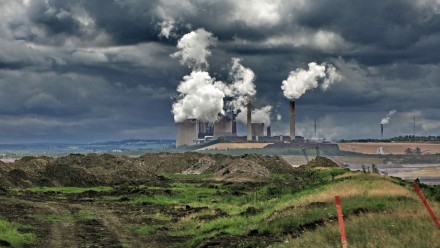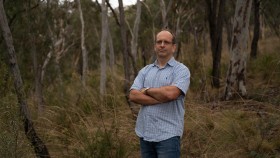Tender will allow Coalition to dig its way out of a coal hole
The federal government desperately needs a cut-through strategy on energy policy. The divisions within the Liberal Party, and between the Liberal and National parties, won’t go away, even though they are costing them electoral support and may ultimately cost them government.
Perhaps the most direct and effective mechanism for the government to cut through, and demonstrate the authenticity of its claim to be “technology agnostic”, would be to announce a tender to meet its future, carefully specified, power requirements, establishing a genuine competitive process, encouraging all parties to give it their best shot.
This could be the simplest and quickest mechanism to end the faux coal vs renewables contest, and should be seen as a genuinely conservative solution.
This would certainly be an effective fact-check, exposing the strengths and weaknesses of the multiplicity of claims and counterclaims and providing the most effective base on which to consider the recent ACCC recommendation that the government consider supporting and facilitating the development of new base load electricity capacity.
The detail of the various positions within the government debate tends to move around. Some just seize on virtually any argument or event to disrupt, while others claim an affinity with what they like to call an ideological position, or our national economic advantage.
Much of the debate turns on prejudice rather than analysis, expressed as preferences for particular resources and technologies. For example, the pro-coal/anti-renewables group makes several points. Australia is the world’s largest exporter of coal; it is a significant industry in terms of jobs and growth; burning coal to make electricity is cheap and provides reliable, 24/7, base load power. They pose the question: “Why should we sacrifice our global competitive position and source of 'cheap' and reliable power – indeed, why don’t we seek to exploit it further as our industrial and export base?"
They argue that we have been sacrificing all this by subsidising renewables, with the result that electricity prices paid by households and businesses have soared and reliability has been seriously compromised - that wind and solar can’t provide stable and dispatchable 24/7 base load. Indeed, that they have introduced an intermittency problem, being unable to consistently meet the morning and evening peaks in demand. They claim the business model for renewables hasn’t been proved in the absence of the subsidy from the renewable energy target.
Mostly, this pro-coal group ignores the climate challenge. Indeed, some of its members would have us withdraw from our Paris commitments on emissions reductions. They make a multiplicity of sub-points - Australia is only a small emitter by global standards, so our emission reductions won’t make much difference against the big emitters in the United States, China and India; if we don’t burn our coal, others will; others are continuing to build new coal-fired power plants.
Of course, such points ignore our position as near-to-the-highest per capita emitter and any global responsibilities we may have as the world’s third largest exporter of fossil fuels and the largest coal exporter.
To the extent that coal advocates acknowledge the need to reduce emissions, they pin their hopes on technologies such as carbon capture and storage that "promises” to catch the gas emitted from electricity generation, liquefy it, transport it and store it – even though this technology has not been demonstrated commercially, at scale, despite billions having been spent globally on its development. Ironically, carbon capture and storage might need a carbon price in excess of US$100 a tonne to be commercially viable.
What is most surprising is how resistant the coal industry and their political supporters have been to alternative technology solutions which would allow them to sustain coal more effectively through the transition phase.
I have worked with technologies that are Australian owned and proven (in one instance by the US government, at scale, in the 1980s) to clean up coal – all consistently eschewed by coal companies over the years that insist their business model is to “just dig and ship”.
Resistance to conversion technology has been, to say the least, odd, in a coal-rich country with dangerously low fuel security.
Don’t get me wrong, I am not advocating such technologies, just making the point as to the blinkered absurdity of many in the pro-coal lobby who simply don’t want to acknowledge the need for any change.
The coal lobby also choose to ignore the rapidly mounting resistance of the finance community to finance or insure new coal-fired power plants – hence, they hope to push government to underwrite it.
The key point is that these transition arguments have become much less relevant as the unsubsidised cost of renewables and effective storage has dropped significantly so they can now deliver cost competitive, reliable and dispatchable 24/7 base load electricity, driving an effective transition to a low emissions industrial and societal base.
The proposed tender process would cut through all these claims and counterclaims and allow the government to be genuinely technology neutral. It would be able to avoid having to make some sort of side-deal on coal, sacrificing its neutrality, to get party room support for the National Energy Guarantee.
This would require the government to amalgamate its power and technical requirements, specifying magnitude and time profile and other desired network services, while being consistent with its Paris commitments. This would be the most effective way to have those who are advocating new ultra super critical coal-fired solutions demonstrate their bona fides against solar thermal, or wind/solar photovoltaics with effective storage.
A well specified tender process would force all sides to put up and shut up, hopefully once and for all.
This article originally appeared in the Sydney Morning Herald. Written by John Hewson, professor at the Crawford School of Public Policy, ANU, and a former Liberal opposition leader.










